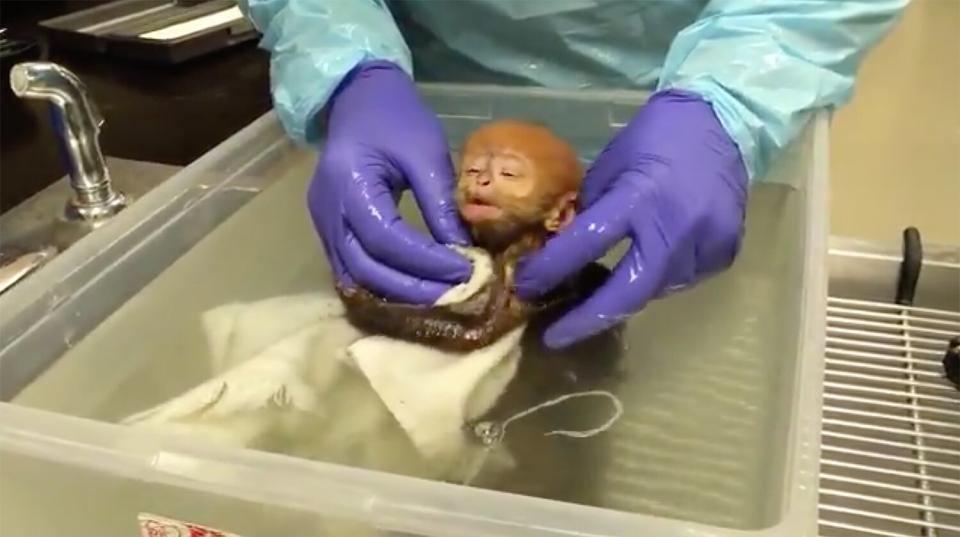Philadelphia Zoo Celebrates Birth of Endangered Baby Monkey to First-Time Parents

Philadelphia Zoo/Twitter baby monkey
The Philadelphia Zoo is celebrating a new arrival.
On Friday, the zoo announced on social media that a baby François langur, which is a type of monkey, was born last month — marking the first birth of the endangered species at the zoo.
The female langur was born on December 13 to first-time parents Mei Mei and Chester. She was named Quý Báu, pronounced "Qwee-bow," which means "precious" in Vietnamese, the zoo wrote on Twitter and Facebook alongside a video of the baby monkey being bathed and fed.
When Quý Báu was born, zoo employees noticed that Mei Mei wasn't attending to her, which the zoo said isn't uncommon for first-time moms. To ensure Quý Báu received the care she needed, the zoo's vet staff took the baby langur to their animal hospital for a bath and food.
"Since then, she and mom have bonded and the entire family is doing great!" the zoo said.
When she was first born, our team noticed Mei Mei wasn’t attending to her, which isn’t uncommon for first time moms. So our vet staff took the baby to the animal hospital for a warming bath and some food.
Since then, she and mom have bonded and the entire family is doing great!— Philly Zoo (@phillyzoo) January 16, 2021
RELATED: Polish Zoo Welcomes Endangered Indian Rhinoceros Baby: 'Best Gift'
According to the New England Primate Conservancy, François langurs are typically found in the dense, humid forests and green valleys of southern Guangxi province in China and northern Vietnam.
The species' population — which is down to only 2,000-2,100 — is listed as "decreasing" due to habitat loss, mining and quarrying, logging, and hunting, the New England Primate Conservancy shared.
To stabilize the population of François langurs, zoos throughout the Association of Zoos and Aquariums launched a shared conservation effort to create the Langur Species Survival Plan, which maintains breeding records for langurs in zoos across the country.

 Yahoo Finance
Yahoo Finance 